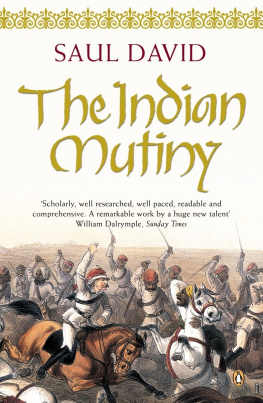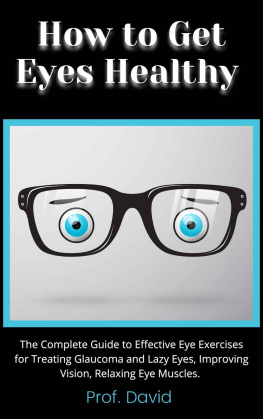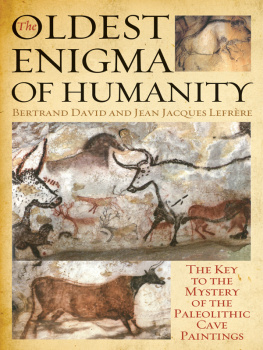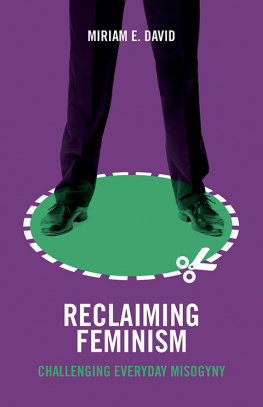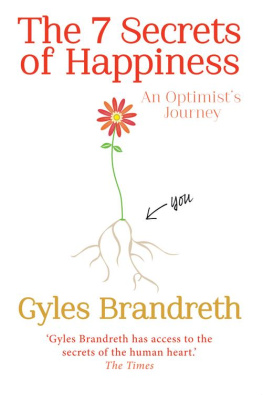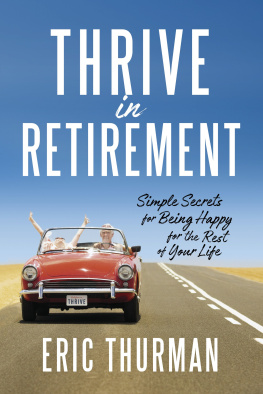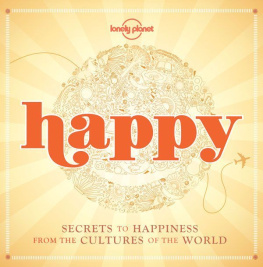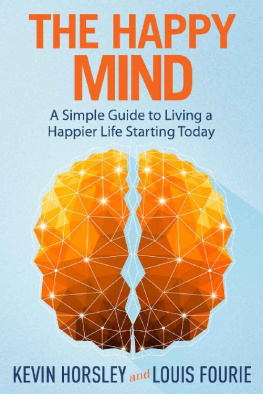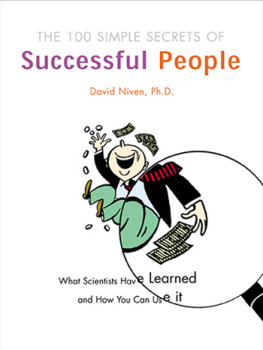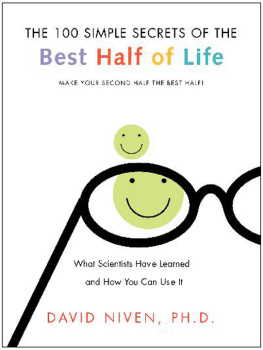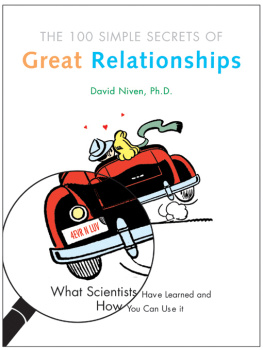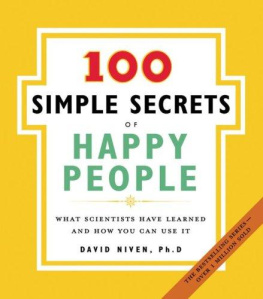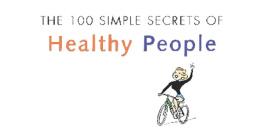David Niven, Ph.D.
To T.O.
Harry Gilman has spent his career studying people, and he knows that often what many people want and need is right in front of their faces, if only they could see it.
No one can snap their fingers and make someone happy. What you can do is help people to see what is useful for them to see. What you can do is point and hope they look.
Harry Gilman is a psychology professor. He could have carved a fine existence out of publishing academic research and lecturing on that research to his colleagues. But unlike many professors, Harry didnt see his job as publishing scientific papers for scientific readers. He said in a seminar one time, What would be the point of finding out something and then never telling anyone who could really use the information? Why play Ive got a secret your entire life? Psychology professors who figure out a better way to think about life spend their careers sharing it with other professors.
One of the many things that made Harry an extraordinary teacher was that he cared. In his psychology seminars, he required every student to submit a notebooka bound, marbleized notebook, to be exactevery week. In it we were told to write something, anything. What did we think about? What were our concerns? What were our hopes, fears? These were the questions the students returned to week after week.
We were so taken with the process that many of us shared our notebooks with one another. Max Leer, one of my classmates, almost always wrote about his relationship with his father, a man who never seemed satisfied with his life or with Max.
Harry would read our entries closely and comment on them. To Max, Harry wrote, Max, for some people there are no victories, just alternate forms of losing.
That phrase never left me. It was a powerful way of sending home the point that Harry had been making in class: much in life is simply a matter of perspective. Its not inherently good or bad, a success or failure; its how we choose to look at things that makes the difference.
What do you make of life? Thats the question, Harry said to the class. Sugar, flour, and eggsare they good or bad? You could make of them a cake, or you could just make a mess. But then that cake, or that messis it good or bad? Can you make it good? Of course. Can you make it bad? Certainly.
Another day, Harry impressed upon me and my classmates what he called the nearly boundless capacity of humans to ignore the long-term implications of their decisions while they focus on short-term effects. He spoke of the difference between an impartial, logical observer, who would always make long-term decisions, and the person who cant see beyond their immediate gratification. A child will always reach for the lollipop; only the adult watching thinks tooth decay and lack of nutrition, Harry said. We have to strive to be the adult watching above, not just living the moment, but seeing from outside ourselves what is happening, what should be happening, what things we are doing that will ultimately hurt us.
Harrys classes interested us, and Harry inspired us. With graduation fast approaching, our conversation often drifted to the subject of our futures and career choices. What can you do with psychology? Harry asked us rhetorically. All we can do is give out the best answers we have. Then people have a chance to use them.
On graduation day, I went up to Harry to shake his hand. I dont know how to thank you, Harry. You made me a better person.
Thank you, David, Harry responded, but I didnt make you a better person. All I can do is point and hope you look.
I offer you The 100 Simple Secrets of Happy People in that spiritpointing to findings of psychological research on happy people, and hoping you will look.
What do happy people do differently than unhappy people? Psychologys best observations appear in academic journals like the Journal of Personality and Social Psychology and the Journal of Applied Behavioral Science. But you may not have access to these journals, and even if you did, you would find them written in scientific gobbledygook, not understandable English.
Thats where The 100 Simple Secrets of Happy People comes in. After reviewing over a thousand studies written during the last decade exploring the characteristics and beliefs of happy people, I have taken the best, most practical advice from that body of research. Instead of using academic jargon, The 100 Simple Secrets of Happy People translates the conclusions of this research into simple, useful advice.
Each study on happiness has been boiled down to its core and then expressed in a way everyone will understand. With the scientific results of research as its foundation, The 100 Simple Secrets of Happy People offers 100 simple pieces of advice and examples of how people find happiness and stay happy.
The 100 Simple Secrets of Happy People is not just one persons intuition. Rather, it reflects the research conclusions of noted scientists studying the lives of regular people. My interpretation and translation of this research will help those who want to know more about the differences between happy and unhappy people. It will also help those who want to know what they can do to enjoy life more. Im pointing now, and I hope you will look.
You are not here just to fill space or to be a background character in someone elses movie.
Consider this: nothing would be the same if you did not exist. Every place you have ever been and everyone you have ever spoken to would be different without you.
We are all connected, and we are all affected by the decisions and even the existence of those around us.

Take the example of Peter, an attorney in Philadelphia, and his dog, Tucket. Tucket was very sick. Gradually he was becoming paralyzed by a tumor on his spinal cord.
Peter could not find a veterinary doctor who could save his dog. Desperate to find someone who could help, he turned to a pediatric neurosurgeon. The doctor agreed to try to help Tucket, and in return he asked Peter for a donation to the childrens hospital he worked in.
Jerry has never met Peter or Tucket. Jerry is a blue-eyed, blond-haired, five-year-old boy who loves to eat mashed potatoes. Jerry also has tumors on his spine and in his brain.
With help from the donation Peter made to the hospital, Jerry underwent successful surgery performed by the doctor to remove the tumors.
Tuckets surgery was also a success.

Studies of older Americans find that one of the best predictors of happiness is whether a person considers his or her life to have a purpose. Without a clearly defined purpose, seven in ten individuals feel unsettled about their lives; with a purpose, almost seven in ten feel satisfied.



